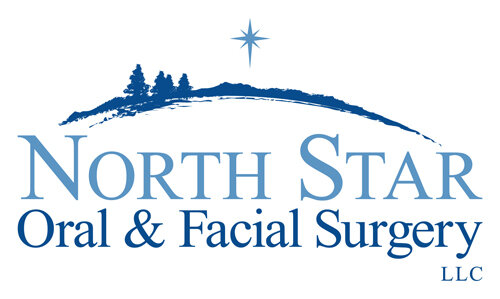After Dental Implant Placement
The ultimate success of your implant(s) depends upon your active cooperation and participation in treatment and care after surgery. These guidelines instruct you in proper care following the placement of your implant(s). The first two weeks after surgery are the most important.
Diet for Single Implants
Do not eat on the implant site. Cold non-chew foods are recommended on the day of surgery, intentionally avoiding the surgical site. You may progress to a normal diet chewing with your natural teeth on the opposite side of your surgery starting the day after surgery.
Diet for Multiple Implants
Clear, preferably cool liquids should be taken on the day of surgery. A bland, mild temperature, nutritionally balanced, liquid to non-chew diet should be adhered to during the firsty 2 months. This will prevent food particles, which could cause infection, from entering the surgical site. After the first 2 months, a progression to soft food will be discussed by your surgeon.
Bleeding
Some oozing of blood is expected from the surgical site for the first few hours. Your saliva may be tinged with blood for the remainder of the day. If bleeding becomes persistent, apply direct pressure with a clean gauze pack or a moistened tea bag for 10 minutes. If this effort does not stop the bleeding you should contact the office.
Swelling
Swelling can be minimized by holding a cold pack or ice bag wrapped in a towel firmly to the face or cheek over the surgical site. This should be applied 20 minutes on and 20 minutes off during the first 36 hours. After 36 hours, it is best to switch from ice to moist heat, placing it to the same areas. Keep head elevated on at least 2 pillows at all times for the first 3 days after surgery. The greatest swelling occurs 2-3 days after surgery. You may be swollen for approximately one week. After that time it should gradually decrease.
Discomfort
Your jaw and lip may remain numb for approximately 6 hours. Ideally, pain medication should be consumed with food. Begin your pain medication while you are still numb to prevent the onset of pain. If you should begin to experience more than mild discomfort, you may take the medication every 3-4 hours as necessary. If this is not adequate, you should contact the office. Swelling and discomfort will be at its maximum on the third day, each day after that you should see improvement.
Oral Hygiene for Single Implants
For the first week brush your teeth 2-3 times daily, avoding the impant area. Use the prescribed mouth rinse 2 times daily (Chlorhexidine Gluconate). Do not use a water pic, or floss around the implant or temporary tooth. After the first week, you will start what is called a ‘salt rub’ around the implant and gums. Dip one Q-tip in water, then the same Q-tip in salt, and gently massage around the gums and implant area. You will do this 2 times daily along with your normal brushing for two weeks. After the two weeks is up, you can go to normal brushing of all your teeth, including the implant area. In certain instances antibiotics may be prescribed. When prescribed, begin 6 hours after surgery and complete prescription as recommended.
Fever
A slight elevation in temperature is common on the evening of surgery, but should not exceed 101 degrees. If this happens please contact the office.
Infection
Infections may occur a day or even several days following surgery. A sudden increase in swelling, throbbing, high fever and/or a foul tasting drainage may indicate infection. If you suspect an infection, you should call the office as soon as possible.
Recovery Restrictions
If you were sedated, do not drive, operate complicated machinery or devices, or make important decisions such as signing documents for the first 24 hours. Smoking should also be avoided, as it retards healing. However, if it is not possible to quit smoking completely, try to severely limit your smoking during the first 2 weeks for this time period. Do not use a waterpik around your implant(s) or suture(s).
Blowing Nose
Do not blow your nose during the first 2 weeks if you had an implant placed in the upper jaw.
Rinsing
A prescription rinse may be recommended after surgery. Peridex rinse may cause staining that is easily removed with a dental cleaning. To clean surgical ares, you may rinse your mouth with tepid salt water (1 teaspoon salt in 8 oz. water) after each meal. Vigorous rinsing should be avoided. For non-surgical areas, routine dental hygiene should resume evening of surgery.
Denture Wear
Your denture, parital or flipper should not be worn until it has been properly adjusted. The time you will be instructed to refrain from wearing your denture will be determined by the surgeon, and will vary form patient to patient.
